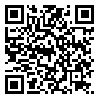BibTeX | RIS | EndNote | Medlars | ProCite | Reference Manager | RefWorks
Send citation to:
URL: http://jdisabilstud.org/article-1-3442-en.html
2- Assistant Professor, Department of Psychology, Naein Branch, Islamic Azad University, Naein, Iran
3- Associate Professor, Department of Psychology, Naein Branch, Islamic Azad University, Naein, Iran
Abstract
Background & Objectives: Elementary school is one of the most essential educational settings, which is mainly considered the basis and foundation of education in the later stages of life, where a person learns the skills of reading, writing, and mathematics. In addition to strengthening educational skills, students in this course of study face problems in various fields, among which we can mention weakness in learning mathematics and lack of interest in mathematics. We are witnessing the weakness of elementary school students in mathematics and the problems that exist in the academic motivation of students of this level. On the other hand, the positive consequences are created by improving mathematics and academic motivation in students. Thus, it is necessary to use an educational program to help these people. Based on this, this research aims to compare the effectiveness of teaching methods based on cooperative learning, concept mapping, and traditional methods on the academic motivation of sixth–grade students.
Methods: The current research method was quasi–experimental with a pretest–posttest design with a control group. The statistical population of the research was comprised of sixth–grade students from Khomeini Shahr City, Iran. Due to the limitations of the study in terms of administrative issues, the long duration of the research, the large number of interventions, the satisfaction and cooperation of the teachers, the satisfaction of the parents of the students, and the limitations of the required facilities, equipment and spaces, 81 students were selected from the mentioned community. Three classes of 29, 27, and 26 students were selected as available samples for research. One class was taught cooperative learning, the other class was taught concept map, and the third class received the traditional method. The Academic Motivation Scale (Harter, 1981) was used to collect data. The data were analyzed using a multivariate analysis of covariance and a Bonferroni post hoc test with a significance level of 0.05 using SPSS software version 24.
Results: The average academic motivation scores of the students in the control and experimental groups based on concept mapping and cooperative learning were 98.11, 96.12, and 97.17. The average academic motivation scores of the students in the posttest stages in the control and experimental groups based on concept mapping and cooperative learning experimental groups were 97.19, 104.04, and 106.90. The average academic motivation scores in the subjects of the two experimental groups were higher than the control group in the posttest phase compared to the pretest. The results of the present study showed that cooperative learning significantly improved students' academic motivation (p<0.001). On the other hand, concept mapping significantly enhanced students' academic motivation (p<0.001). However, no significant difference was observed between these two educational methods in changing students' academic motivation (p=0.452).
Conclusion: The results showed that the teaching method based on cooperative learning and concept maps, compared to the traditional method, significantly affects the academic motivation of mathematics. From the research findings, it can be concluded that teachers can use cooperative learning methods and concept maps to improve the academic motivation of sixth–grade students. Also, teachers can use one of the concept map or collaborative learning methods in their class to increase academic motivation according to their class's taste and conditions.
| Rights and permissions | |
 |
This work is licensed under a Creative Commons Attribution-NonCommercial 4.0 International License. |



